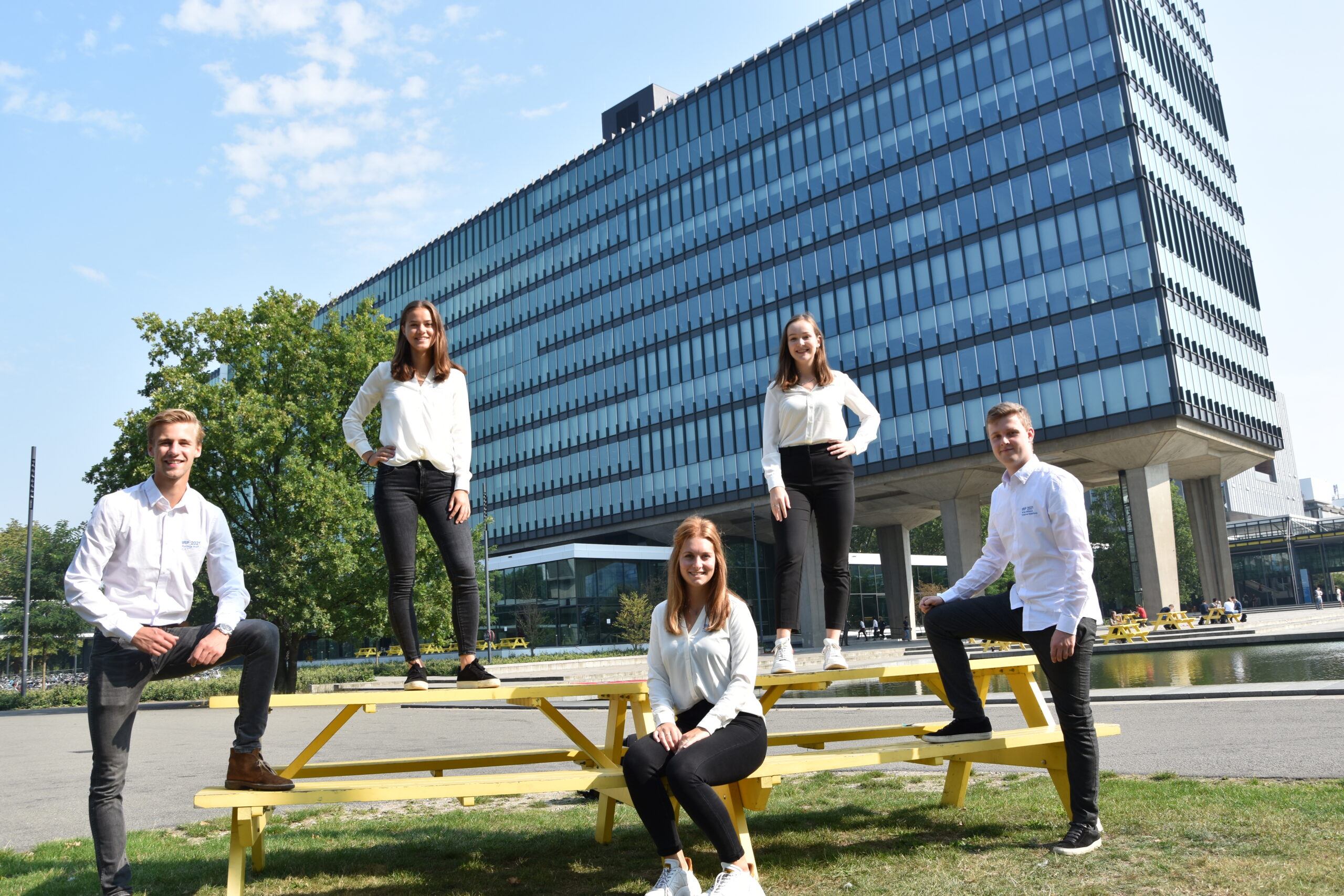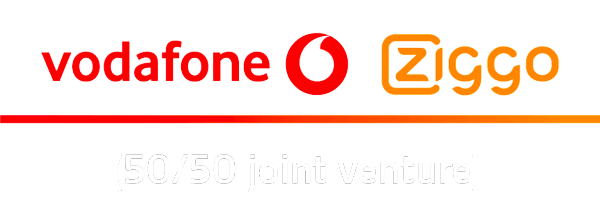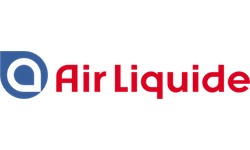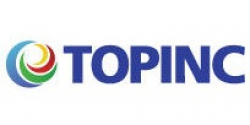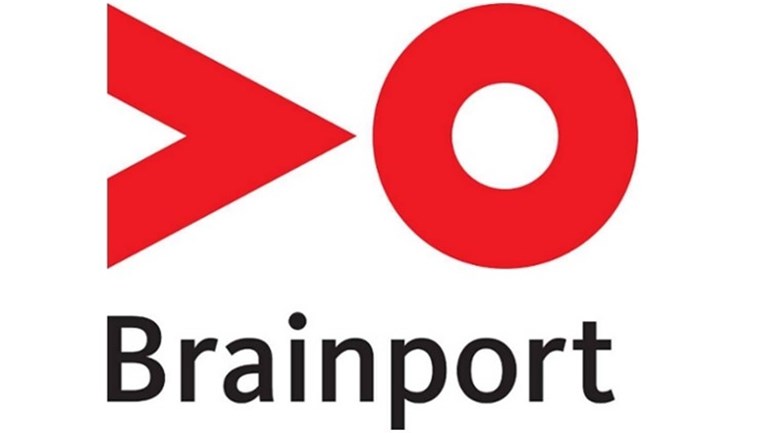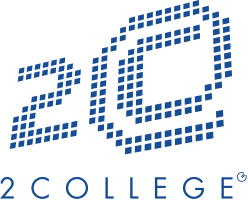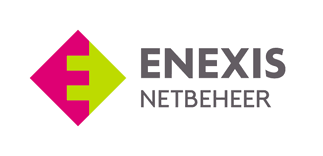Current executive committee:
The organization of the International Research Project 2021 is in hands of the following executive committee:
F.l.t.r.: Matthijs Wolf, Simone van der Velden, Romy Olislagers, Colette van Happen, Brian Willems.
Romy Olislagers, Chairman![]()
chairman.irp@industria.tue.nl
Colette van Happen, Financial Manager ![]()
financial.irp@industria.tue.nl
Simone van der Velden, Coordinator Contract Research![]()
contracting.irp@industria.tue.nl
Brian Willems, Coordinator External Relations & Program![]()
external.irp@industria.tue.nl
Matthijs Wolf, Coordinator Culture, Accommodation & Transportation![]()
c.a.t.irp@industria.tue.nl
Former executive committees:
-
IRP 2020
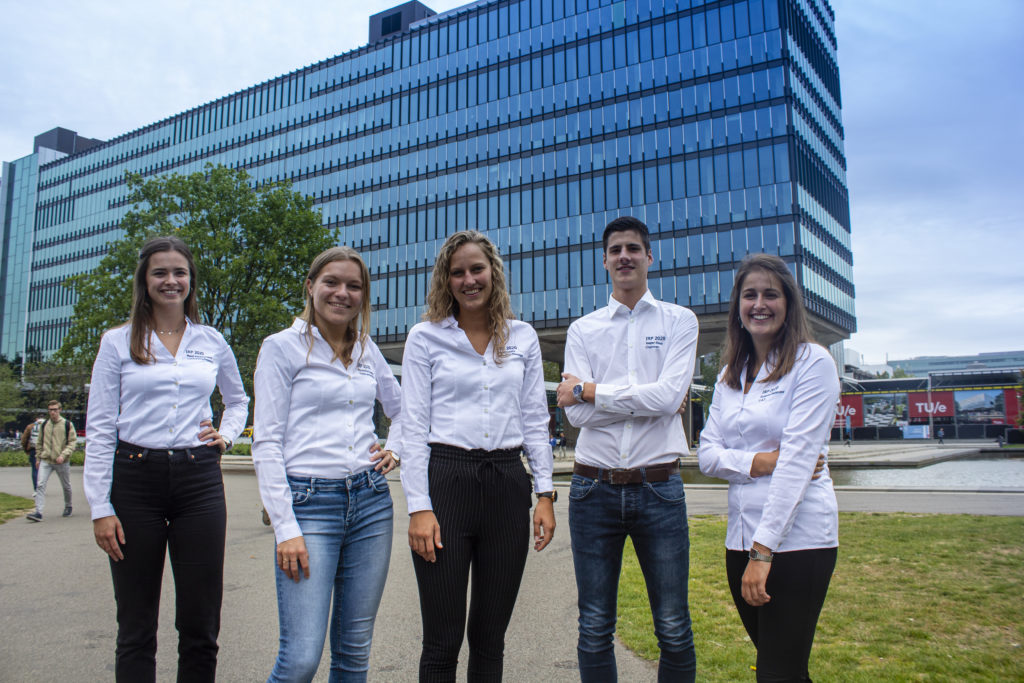
- f.l.t.r.: Maud Vorstenbosch, Minouche Deelen, Steffi Neefs, Jasper Ebus, Suzanne Ostlender.
-
Jasper Ebus, Chairman
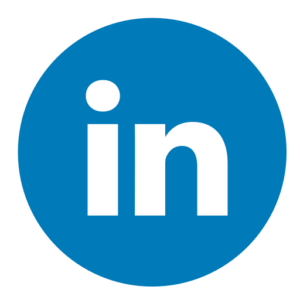
- chairman.irp@industria.tue.nl
- Steffi Neefs, Financial Manager

- financial.irp@industria.tue.nl
- Maud Vorstenbosch, Coordinator Contract Research

- contracting.irp@industria.tue.nl
- Minouche Deelen, Coordinator External Relations & Program

- external.irp@industria.tue.nl
- Suzanne Ostlender, Coordinator Culture, Accommodation & Transportation

- c.a.t.irp@industria.tue.nl
IRP 2019
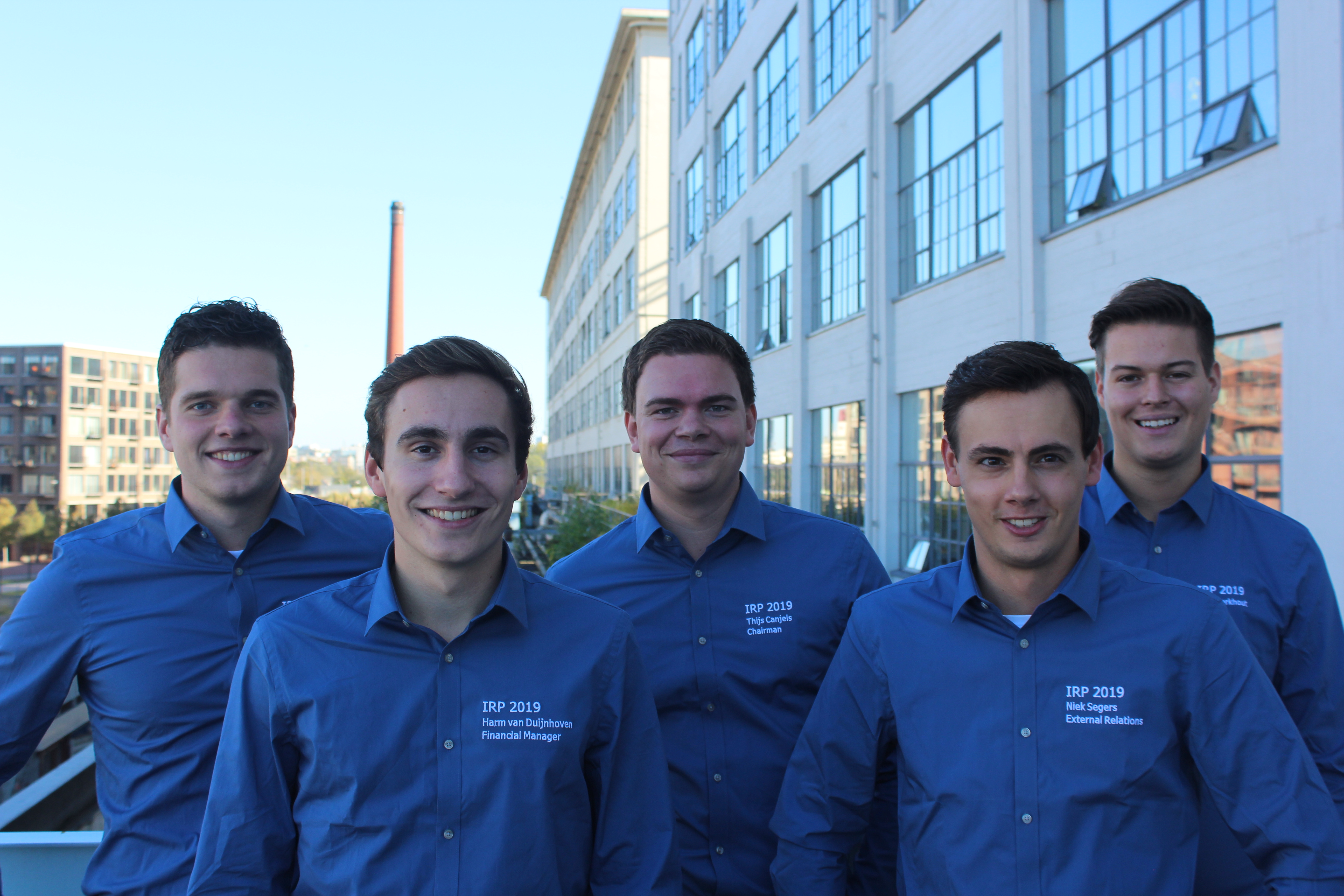
f.l.t.r.: Ward de Kleijn, Harm van Duijnhoven, Thijs Canjels, Niek Segers, Mick Berkhout.
- Thijs Canjels, Chairman

- chairman.irp@industria.tue.nl
- Harm van Duijnhoven, Financial Manager

- financial.irp@industria.tue.nl
- Ward de Kleijn, Coordinator Contract Research

- contracting.irp@industria.tue.nl
- Niek Segers, Coordinator External Relations & Program

- external.irp@industria.tue.nl
- Mick Berkhout, Coordinator Culture, Accommodation & Transportation

- c.a.t.irp@industria.tue.nl
IRP 2018
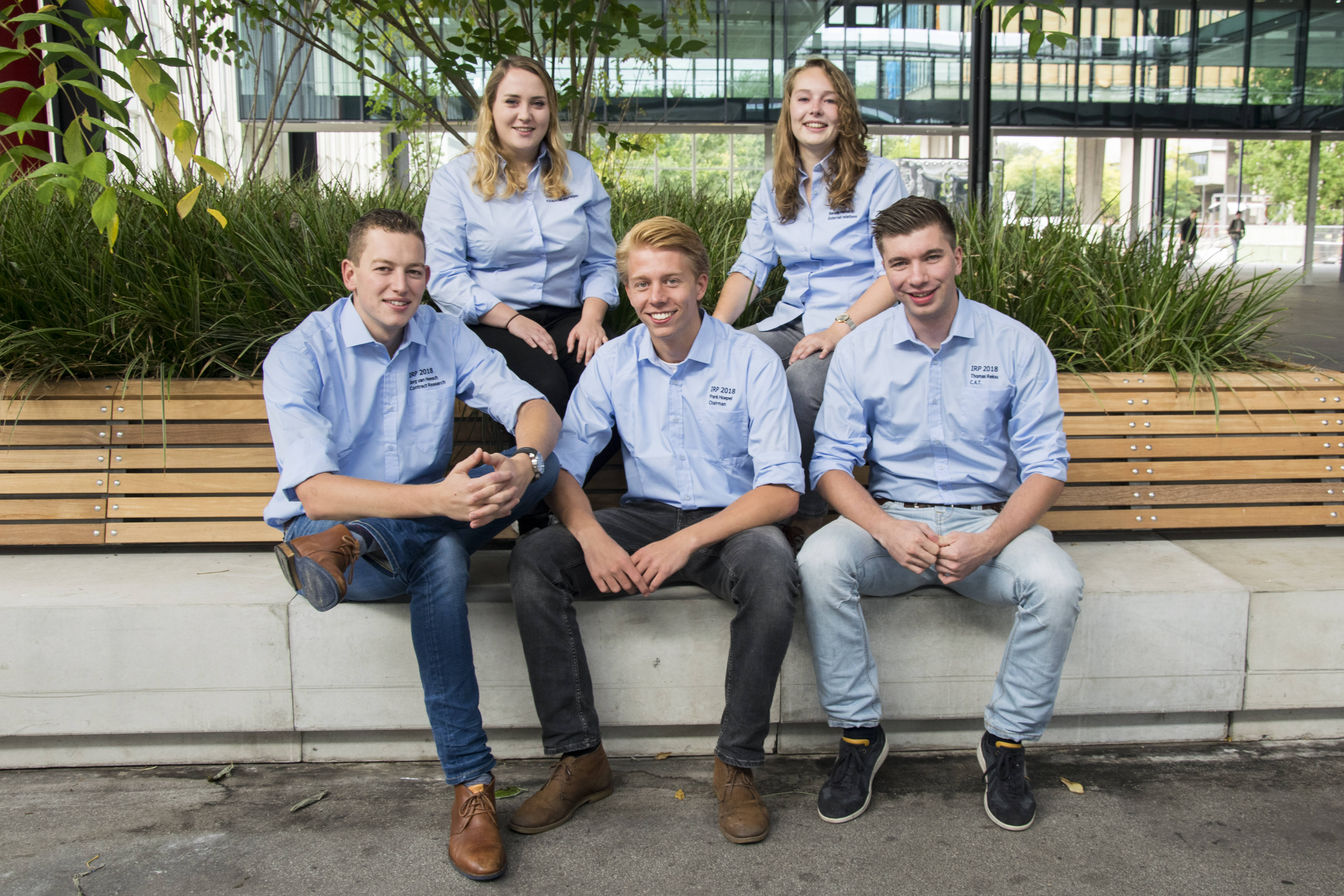
f.l.t.r.: Jorg van Heesch, Saskia Keet, Frank Hoepel, Renate Maresch and Thomas Relou.
Frank Hoepel, Chairman ![]()
Saskia Keet, Financial Manager![]()
Jorg van Heesch, Coordinator Contract Research![]()
Renate Maresch, Coordinator External Relations![]()
Thomas Relou, Coordinator Culture, Accommodation & Transportation![]()
IRP 2017
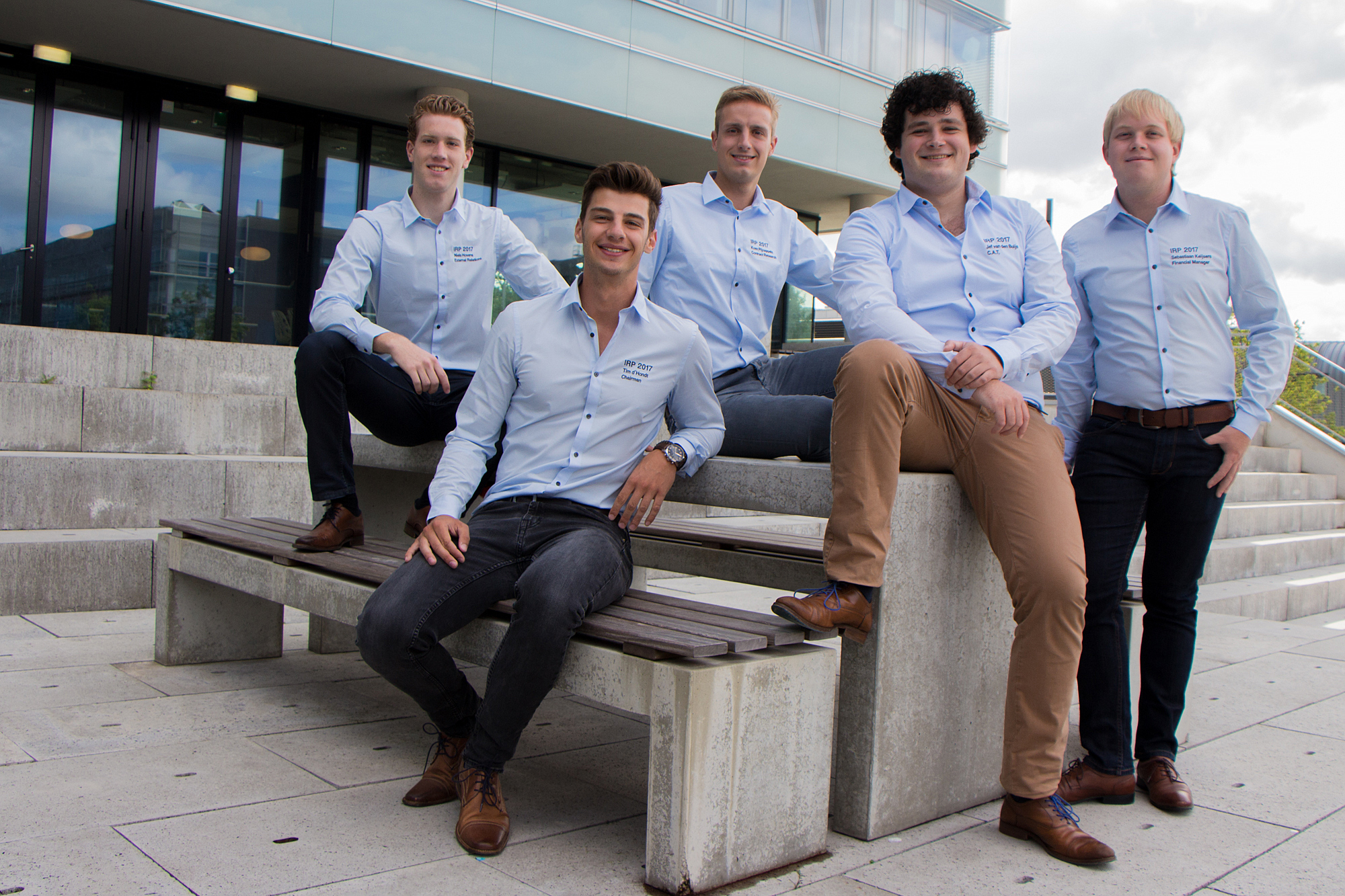
f.l.t.r.: Niels Hovens, Tim d’Hondt, Koen Pijnappels, Jef van den Buijs and Sebastiaan Keijsers.
Tim d’Hondt, Chairman
Sebastiaan Keijsers, Financial Manager
Koen Pijnappels, Coordinator Contract Research
Niels Hovens, Coordinator External Relations & Program
Jef van den Buijs, Coordinator Culture, Accommodation & Transportation
IRP 2016
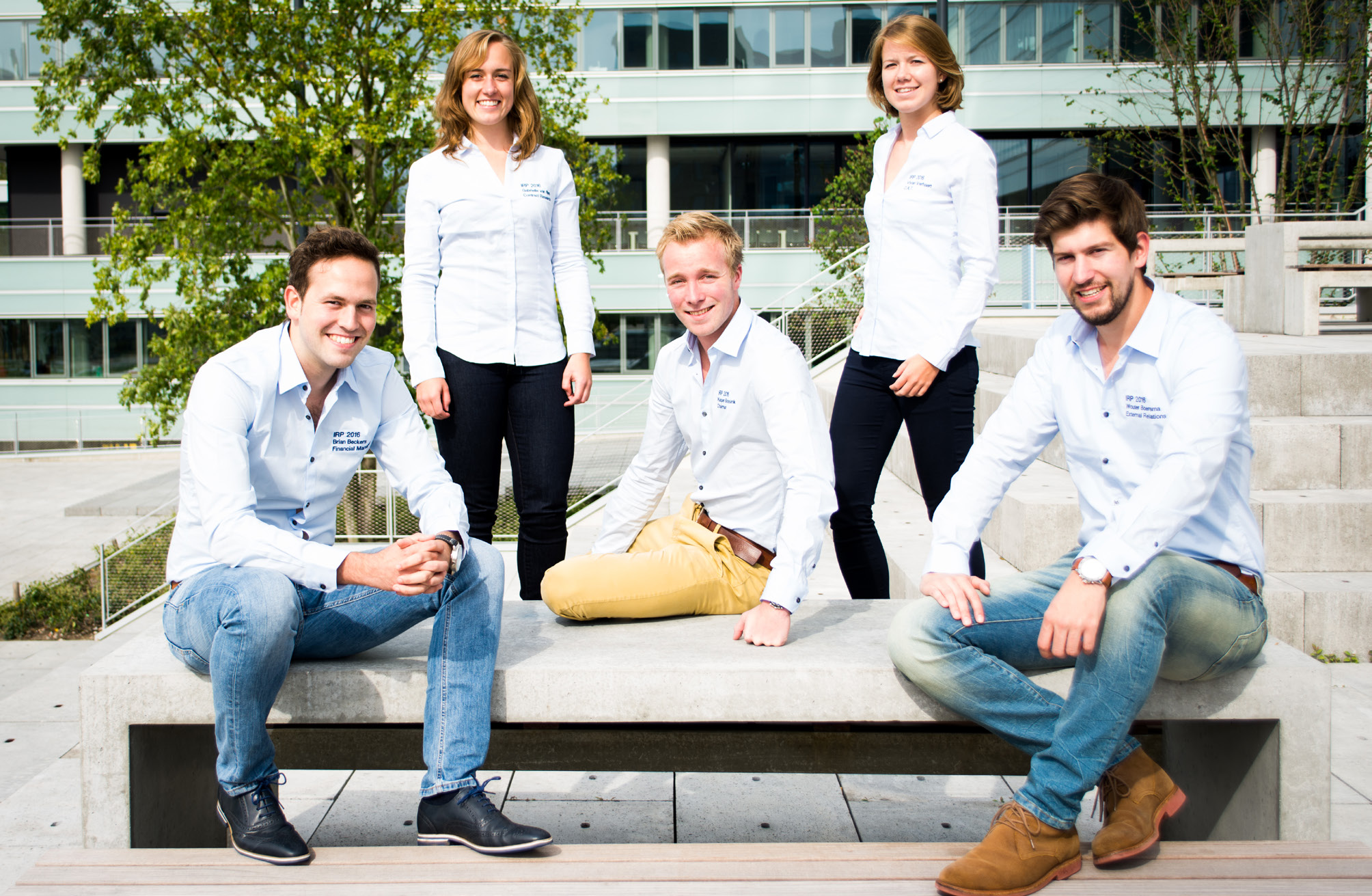
f.l.t.r.: Brian Beckers, Gabrielle van Nes, Kasper Bossink, Vivian Verhaert and Wouter Boersma.
Kasper Bossink, Chairman
Brian Beckers, Financial Manager
Gabrielle van Nes, Coordinator Contract Research
Wouter Boersma, Coordinator External Relations & Program
Vivian Verhaert, Coordinator Culture, Accommodation & Transportation
IRP 2015
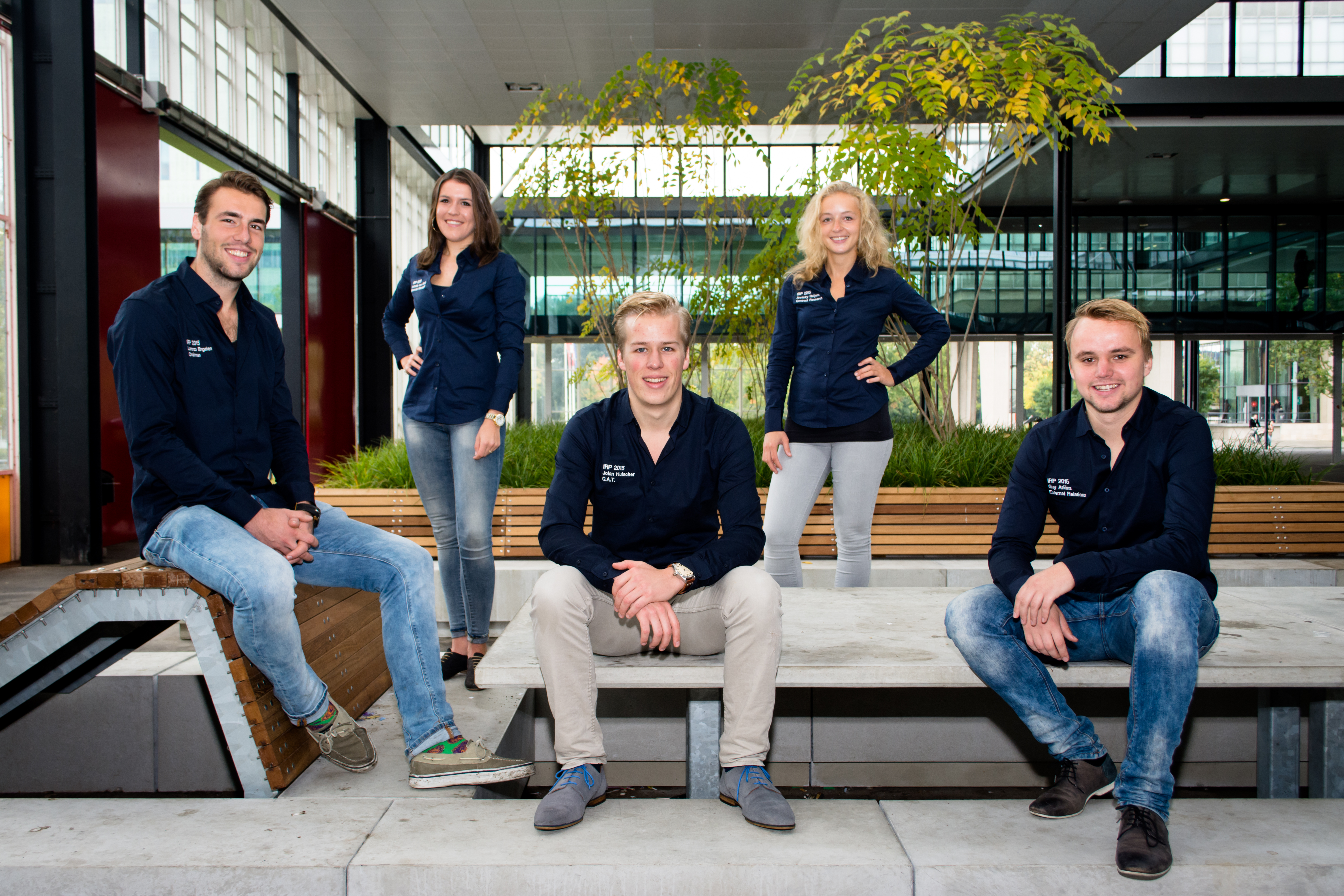
f.l.t.r.: Lorenzo Engelen, Isabelle van Wely, Jolan Hulscher, Annicky Reijers and Guy Ariens
Lorenzo Engelen, Chairman
Isabelle van Wely, Financial Manager
Annicky Reijers, Coordinator Contract Research
Guy Ariens, Coordinator External Relations & Program
Jolan Hulscher, Coordinator Culture, Accommodation & Transportation
IRP 2014
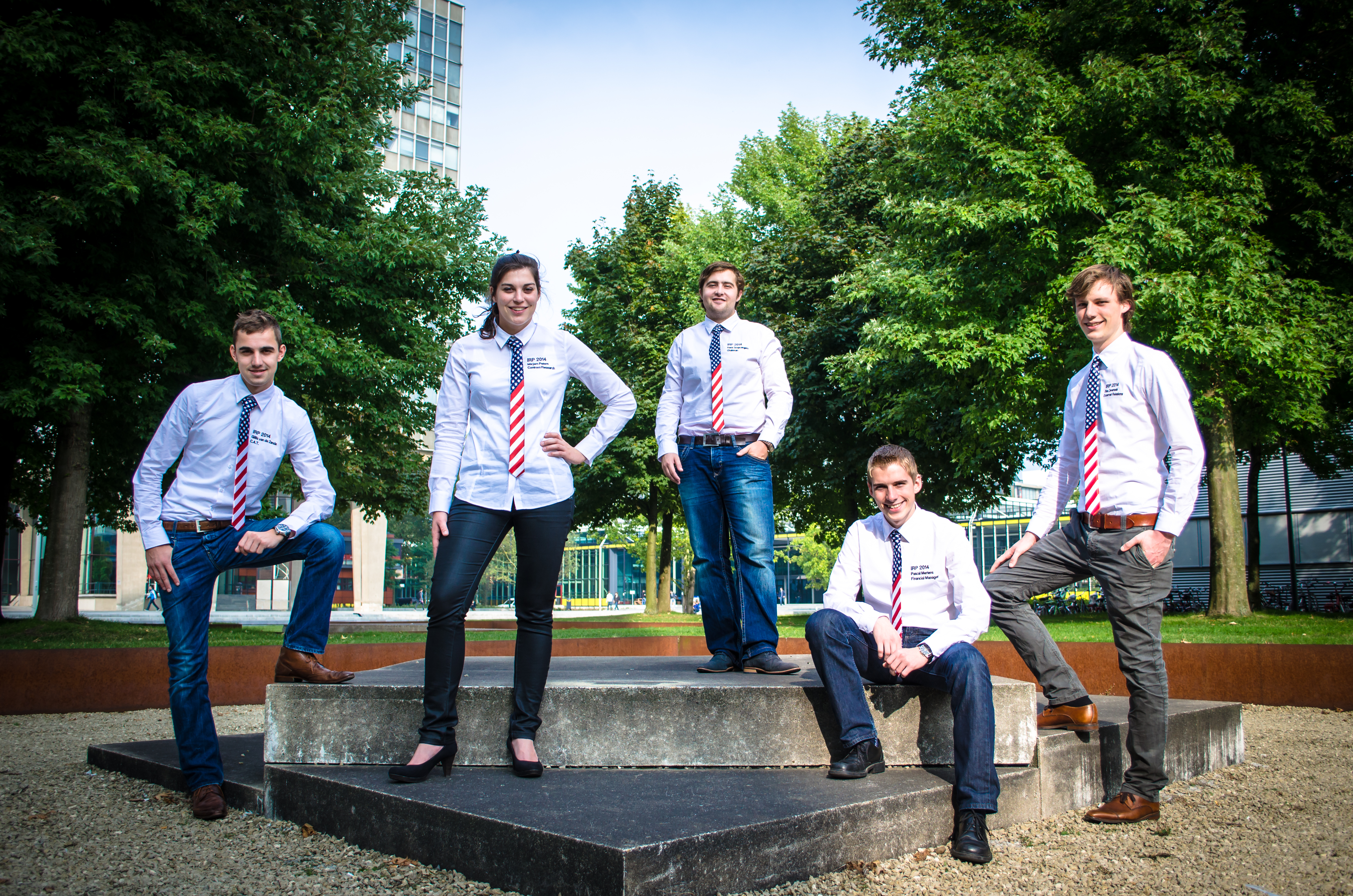
f.l.t.r.: Gillis van de Zande, Mirjam Peters, Henk Snepvangers, Pascal Mertens and Bas Zwartelé
Henk Snepvangers, Chairman
Pascal Mertens, Financial Manager
Mirjam Peters, Coordinator Contract Research
Bas Zwartelé, Coordinator External Relations & Program
Gillis van de Zande, Coordinator Culture, Accommodation & Transportation


